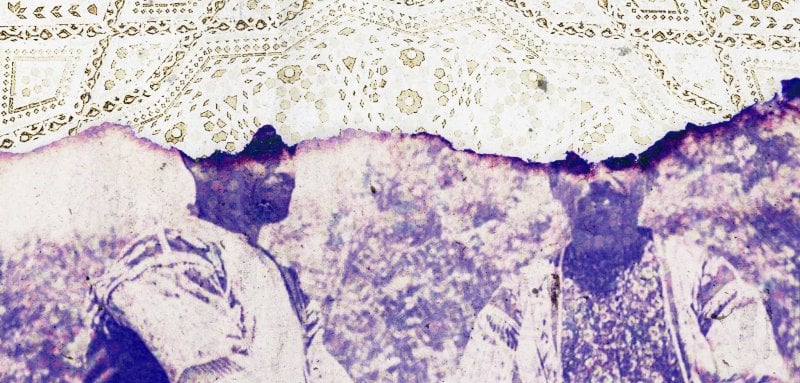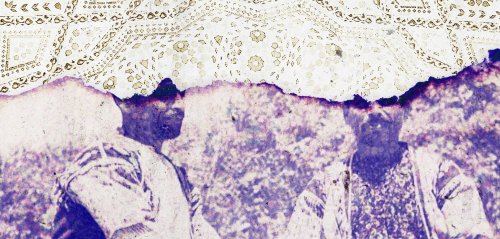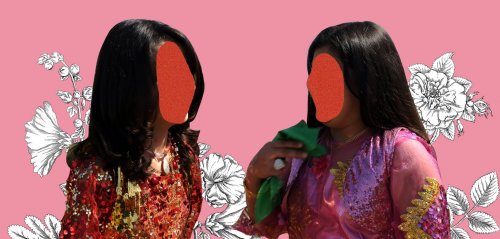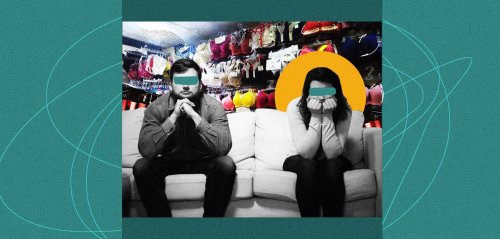My fears in elementary school came down to one of two things: the first, not getting a perfect (or almost perfect) score in maths; the second, that I belonged to the Alawite sect would be exposed.
These fears had come about from a series of incidents that I witnessed. These incidents had made mathematics, for instance, a criterion and a measure of intelligence, and therefore failing it would have established the fact that I am stupid or that my sect is a dangerous secret. I was convinced that if I was exposed as an Alawite, disaster was be sure to follow, causing me a ton of harm or a scandal of the highest caliber.
On my first day in kindergarten, my father called me after he had come home from work, his first question to me was whether I had spoken in the Levantine Arabic dialect (also called the Shami dialect), or the Jabali (Jbeiliya as we call it) dialect, with my new friends? I was silent for a moment. I hadn’t wanted to lie then, for I did not know at that time whether I had mastered the Shami dialect yet, even though my mother and sisters had taught it to me before the start of the semester. I reassured him, saying, “I spoke in mtartak* (broken) Shami.”
My sisters, who also attended the same school, went to my mother to ask her not to let my father come to our school ever again, telling her in one voice, “He is embarrassing us with his accent”
At that age, I did not understand what a religious sect was. What I did understand was that I belonged to something where the letter Q (‘qāf’ in Arabic) is heavily used - something that has holy sites and shrines for dead men that carry a special sanctity. Its people eat bulgur with chickpeas and chard pies. It has mixed weddings and loud songs, and its women do not cover their heads with scarves. In it, all these practices must remain secret and must not be revealed to strangers - or those who do not follow the Alawite sect. It must remain secret from all of them, because they will want to harm us, or will just laugh at us in the best of cases if our sect is exposed.
Throughout my years of elementary school, especially during the first grades when we were still young children with tender minds, I was afraid that the letter ‘qāf’ would escape my throat and tumble out. So I began chase it out of my conversations like a criminal, or like some scar that might reveal the truth of who I was to others, trying to be extremely careful with the vowels and pronunciation and making sure to pronounce certain words like the people of Damascus instead of how I was used to at home.
My repressed speech felt like some sort of impending danger looming over my head, and my fears doubled after I had interacted with fellow students and made friends with them. It was no longer a fear solely based on my family’s cautionary warnings, but rather was based on a reality that had personally happened to me. Once, in the fourth grade, I was sitting with my friends, and the topic of the head scarf came up. One went around asking each of us, “Are you an Alawite?” My friend sitting next to me exclaimed indignantly, “As if! How dare you say that I’m Alawite?” My heart nearly pounded out of my chest from the anxiety then, which I tried to hide when she reached me by answering her question with, “No, of course not.”
When we were still young children with tender minds, I was afraid that the letter ‘qāf’ would escape my throat and tumble out. So I began chasing it out of my conversations, like some scar that might reveal the truth of who I was
At that time, I felt how dangerous it would be if I was found out, and how bad it was to be an Alawite. So I went through all of my personal stories and experiences, modifying and altering each one down to the letter, in order to conceal the truth about my identity. If I was asked what I had for lunch the day before, I would say macaroni instead of the bulgur with chickpeas dish that my mother made. If I was asked about the city I come from, I would replace al-Ghab Plains in Hama with Sham (Damascus). If they asked me which of the women in my family wore the headscarf, I would answer that my aunts do. I couldn’t say that my mother wore the hijab, since she used to pick me up from school sometimes, and this would have exposed my lie. And after every summer vacation I spent in my mother’s seaside village, I would also go to great lengths to hide small details that might expose me, such as visiting a holy site or shrine, or sheep slaughter to fulfill a vow, or swimming in the river that runs next to my grandfather’s house. I did not want them to know that I’m from a village too, because I thought that villages were for Alawites only, and that the people of other sects and religions only came from the neat and pretty cities.
One seemingly normal school day, what I had been so afraid of finally happened, and the story that I had so carefully spun was torn apart in an instant, exposing my lies to others. Ever since, my father coming to pick me up from class became a problem that I haven’t been able to completely get out of.
The long years that my father lived in Damascus did not affect his original Jabali accent at all. That day, he came into the classroom, began talking to the teacher, and then directed his words to me. It wasn’t even in broken Shami. It was in perfect Jabali dialect, the kind that can only come from those who were raised in a village. On the next day, some of the girls in my class gathered around me laughing and asking me, “Why does your father speak like that?” And a new lie broke out from between my lips, “My (paternal) grandmother’s origins come from the villages of Hama, but he is from Sham (Damascus), and children learn to speak like their mothers. So he speaks like her even though he’s from Damascus, imagine that!”
The day passed without any more incident, but I had a feeling that doubts had begun to revolve around me. As soon as I returned home, my sisters and I, who were in the same school as me, went to my mother to ask her to not let my father come to our school ever again, telling her in one voice, “He is embarrassing us with his accent.”
Once, the topic of the headscarf came up. A friend began asking around: “Are you Alawite?” One girl exclaimed, “How dare you say that?” My heart nearly pounded out of my chest then, and when she reached me I answered her: “No, of course not”
The conversations about sect and origins lessened as we grew up and progressed through each grade. I remember that I was beginning to make inner peace with my secret identity, but then one teacher, while she was scolding us during class over how dirty the classroom was, said, “ The classroom looks like the dirty garages.” She used ‘dirty garages’ as an example, since garages here are usually full of uncivilized villagers, according to her, and that is why we always find them dirty. That sentence was a brand new reminder for me that my identity - and everything connected to it - must remain a secret to carry throughout my years of school, in order to protect myself from ridicule, or alienation.
When I grew up, I understood that the problem was not from my classmates, or that teacher, but rather it was the problem of an entire society, where it isn’t possible to talk about differences and diversity without dispute and fighting following soon after. There is also a lack of talk about the people of other provinces, their dialects, and cultures in the media, in addition to adopting the capital Damascus, and the Shami dialect, as the center of Syria and the Syrian society. You will find that my story, if we exclude sect and religion from it, is similar to the stories of many people who come from Deir Ezzor, Abu Kamal or Daraa.
My experience as a girl that belongs to the Alawite sect and who originates from countryside villages, and who was born and lived her entire life in the city of Damascus, has caused me plenty of complications when it comes to my relationship with my identity. Until recently, I used to think that the city’s residents were much classier and better than the villagers, and that the dialect of the people of Damascus was more elegant than my country dialect. Until this moment, I am still completely incapable of speaking in my original dialect when communicating with strangers even though I use it with my family.
I will turn twenty-seven soon, and I am writing now to break years-old ice, to try busting the myth of the “secret sect”, and to find space for the members of the Alawite sect in the Syrian landscape and the social scene - not as naive villagers defined by their strange beliefs, the way that they are portrayed by Syrian drama shows, and not as individuals who have secret rituals and lead a secret life, like many outsiders think. I write, full of hope, that in the future a girl will not be forced to falsify her origins in order to protect herself from alienation or ridicule, whether she was from a coastal city, from Hama, or from the island. I am hopeful that sectarian, religious and cultural diversity will become a vital and important part of the collective Syrian consciousness.
*The views and opinions expressed in this article are those of the author’s and do not necessarily reflect the official policy or position of Raseef22
Raseef22 is a not for profit entity. Our focus is on quality journalism. Every contribution to the NasRaseef membership goes directly towards journalism production. We stand independent, not accepting corporate sponsorships, sponsored content or political funding.
Support our mission to keep Raseef22 available to all readers by clicking here!
Interested in writing with us? Check our pitch process here!







